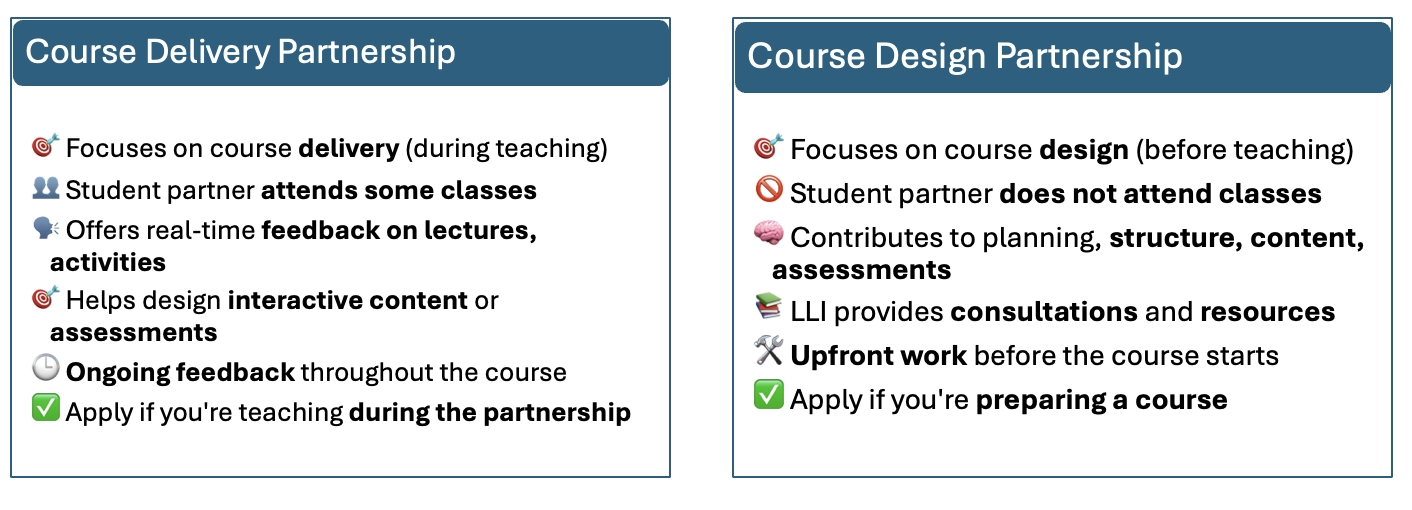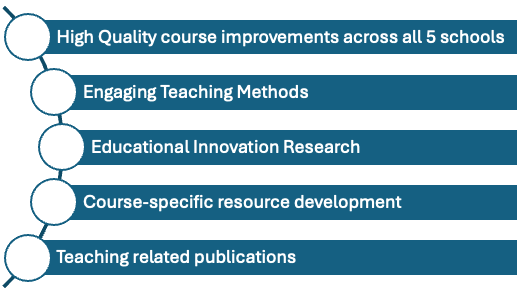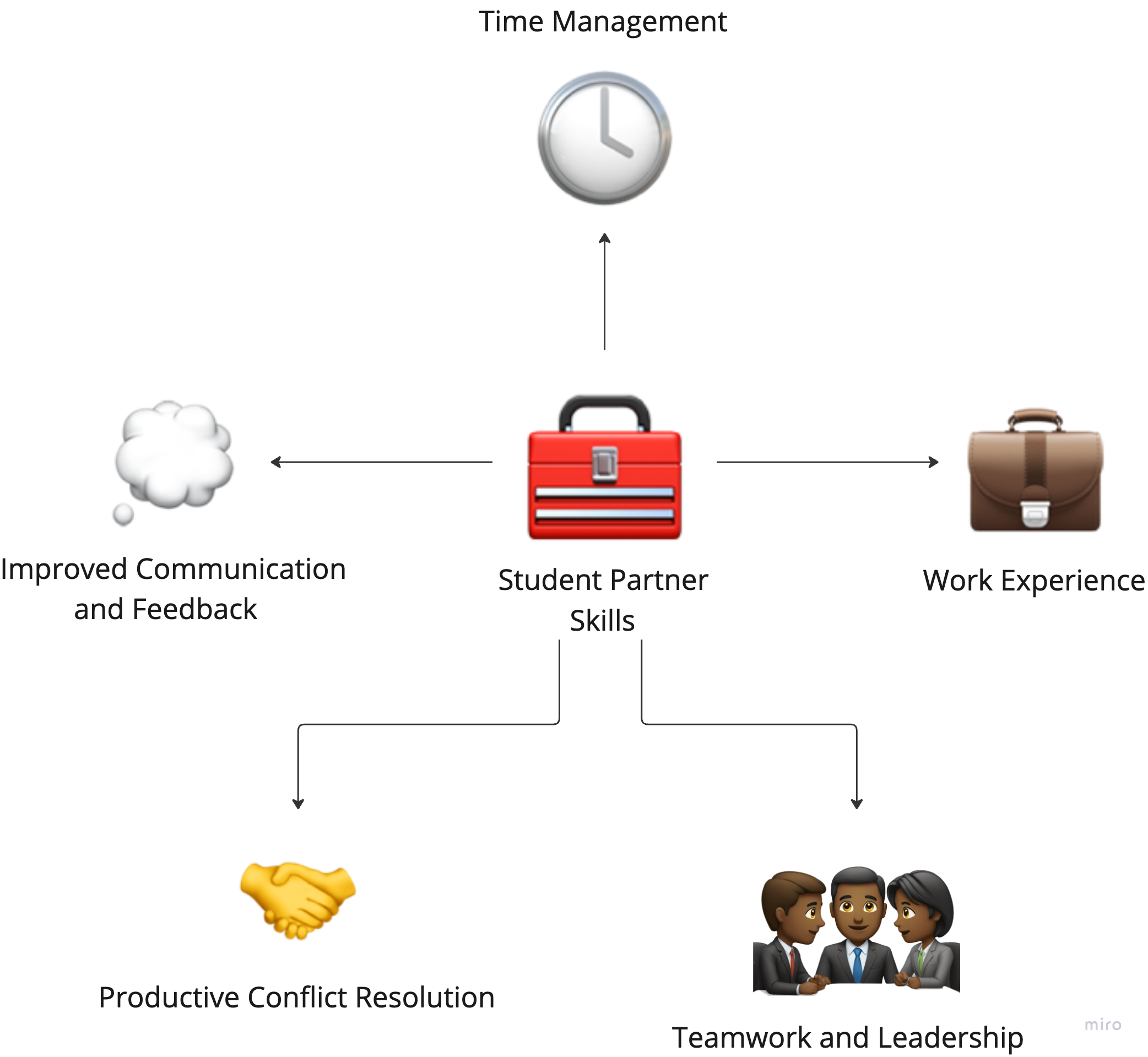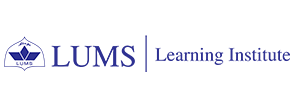Pedagogical Partnership Program (PPP)

Purpose of the Program
The Pedagogical Partnership Program (PPP) is a signature program
of the LLI that promotes students’ valuable expertise as learners and involves them directly in improving their educational experiences. Students partner with faculty or staff members for an entire semester on projects to create more impactful, relevant, and inclusive learning and teaching opportunities at LUMS. Students are paid a monthly stipend, or in some cases get course credit through the Syed Ahsan Ali and Syed Maratib Ali School of Education (SOE) for their partnership work.
Impact
Since 2020, 160 faculty and students have proposed and carried out 65+ different partnership projects sponsored by LLI. In Fall 2021, a new undergraduate course was piloted at SOE, which involved 18 additional partnerships focused on undergraduate students observing teaching and giving feedback to faculty partners who came from all 5 schools.
Over the past year, these partnerships have led to several important developments:

The main impact of the Pedagogical Partnership Program is evident in higher quality course content and delivery and better educational outcomes. The program also increased students’ sense of ownership in their own education and allowed the faculty to gain insights into their teaching practices from the perspective of their students. The transformative experiences of students and faculty and the enhanced quality of teaching and learning have been documented at the end of the partnership reports submitted by student/faculty partners, presentation of their work at LUMS and also higher course evaluations reported by the faculty.
Student partners have reported that they have developed key skills through this program, as visualized below.

Another impact of the program has been on the mindsets of the participating faculty and students, who felt that the partnership program disrupted the existing power dynamics which dismissed the value of students’ knowledge. This led the faculty to respect student voice and keep a close ear to the ground as they designed and delivered their courses. The students reported higher self-esteem and confidence as a result. In addition, they also explained how the experience of working with faculty allowed them to approach the course design from the perspective of teaching faculty and realise the thought and effort behind it. The partnering students and faculty also reported an increase in trust between them. The faculty shared having more trust in the potential of the students, while student partners felt they trusted themselves more and felt responsible, leading and ‘managing it like a boss,’ as one student put it. During the whole process, faculty’s appreciation and encouragement seemed to have acted as a catalyst in improving the performance and progress of the students.
Future Developments
Many student partners have claimed that the opportunity to be a partner is one of the best experiences they have had as students at LUMS. Thus, we want to offer this opportunity to many more students. In the coming year, LUMS will expand student involvement as partners in more educational activities as we broaden the umbrella of “partnership” to also include student internships with other units, offices, and organisations within LUMS. LLI will play a role in supporting these new forms of partnerships through capacity building initiatives that help students and faculty/staff to learn about how to work “in partnership” and move beyond the top-down interactions that typically define these relationships.


